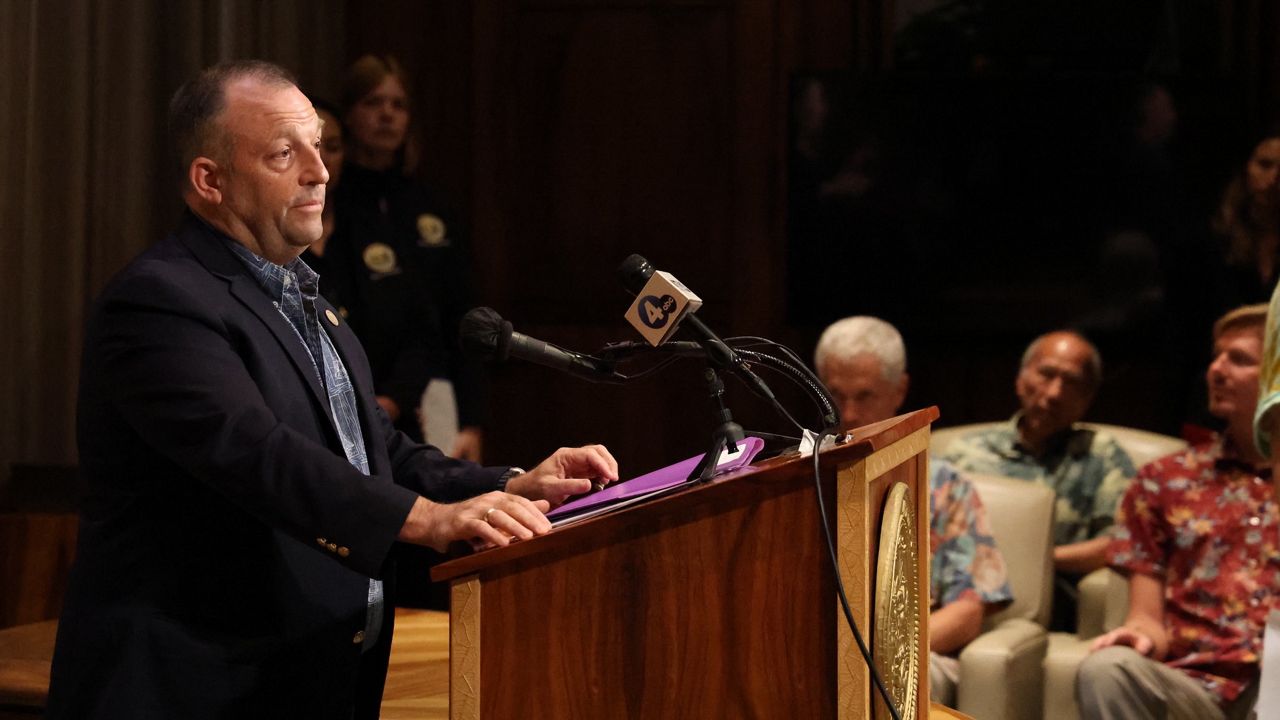HONOLULU — Continuing his series of themed bill signings, Gov. Josh Green enacted 10 bills Wednesday that he said would expand access to affordable housing and provide assistance to families and individuals at risk of becoming homeless.
“Since taking office, tackling the hard issues of housing and homelessness has been at the forefront of my administration’s efforts,” said Green. “Unless we address the lack of affordable housing in our state head-on, the housing crisis will continue to affect the quality of life for all our communities, which is why I am pleased to be signing various bills that work to provide some solutions to help those most in need.”
Senate Bill 764 Senate Draft 1, House Draft 3, Conference Draft 1, now Act 96, allows banks to invest in entities formed to invest in developing residential properties that qualify for low-income housing tax credits. This bill is designed to encourage financing of affordable residential housing projects by increasing the investment limit.
Senate Bill 865, SD2, HD1, CD1, now Act 97, is intended to increase the number of affordable residential leasehold units in the state by establishing a 99-year leasehold program to develop low-cost homes on state- and county-owned land in an urban redevelopment site to be sold in leasehold by the Hawaii Community Development Authority to qualified residents.
“With Act 97 (SB865), the state for the first time will take direct responsibility for reversing the housing shortage by providing income-blind, revenue-neutral, 99-year leasehold homes for all of Hawaii’s people,” said Sen. Stanley Chang. “It’s a proven model that has worked in Singapore and will finally enable every generation of local people to have a good life here in Hawaii.”
SB 898, SD2, HD1, CD1, now Act 98, is aimed at preventing older adults and families from becoming homeless. The act temporarily expands the State Rent Supplement Program specifically for qualified persons age 62 or older and are homeless or at imminent risk of becoming homeless. Funding from the Hawaii State Rent Supplement Program will help eligible families by subsidizing part of their monthly rent.
House Bill 674, HD1, SD1, CD1, now Act 99, gives the Hawaii Public Housing Authority the ability to give preference for public housing to those who are most in need by eliminating the percentage requirements related to the admission of applicants into federal and state low-income public housing units. Previously, such consideration was limited by the requirement that not less than 50% of available units be for applicants without preference. This change will help homeless families and individuals, victims of domestic violence, and those who are displaced.
“This was a monumental year in making significant progress toward addressing the affordable housing crisis in Hawaii,” said Rep. Troy Hashimoto, chair of the House Committee on Housing. “We are immensely proud of our focused efforts in providing housing relief to those who need it the most. Our continual priority has been to address the needs of asset-limited, low-income families, renters, Native Hawaiians and our kupuna population.”
Green also signed the following housing-related bills:
- SB 1357, SD1, HD1, CD1 (Act 90) extends the sunset dates for the issuance of county affordable housing credits to the Department of Hawaiian Home Lands.
- HB 675, HD1, SD2, CD1 (Act 91) requires the Hawaii Housing Finance and Development Corporation to open at minimum two application periods each year for the receipt of applications for financing for the development of affordable housing in the State from the Low-Income Housing Tax Credit Program, Hula Mae Multi-Family Program, Rental Housing Revolving Fund Program and Dwelling Unit Revolving Fund Program, provided sufficient funding is available.
- HB 677, HD1, SD2, CD1 (Act 92) changes how interest is computed when a purchaser of certain real property has to pay the HHFDC upon sale or assignment of a property. It authorizes HHFDC to establish a five-year dwelling unit revolving fund equity pilot program. It also authorizes HHFDC to use up to $10 million in existing funds in the dwelling unit revolving fund for the program.
- HB 992, HD1, SD1, CD1 (Act 93) clarifies that certain funds appropriated pursuant to Act 88, SLH 2021, as amended by Act 248, SLH 2022, will be deposited into the affordable homeownership revolving fund for the purposes for which the revolving fund was established.
- HB 1366, HD1, SD2, CD2 (Act 94) requires the Department of Human Services to establish a three-year return-to-home pilot program to provide eligible homeless individuals with assistance in being reunited with family and relatives in their home state.
- HB 1397, HD1, SD2, CD1 (Act 95) establishes a supportive housing pilot program in the Statewide Office on Homelessness and Housing Solutions.
“Each of these bills will get us one step closer to providing long-term housing solutions and easing our housing crisis, but it’s just the beginning,” said Green.
Michael Tsai covers local and state politics for Spectrum News Hawaii. He can be reached at michael.tsai@charter.com.








